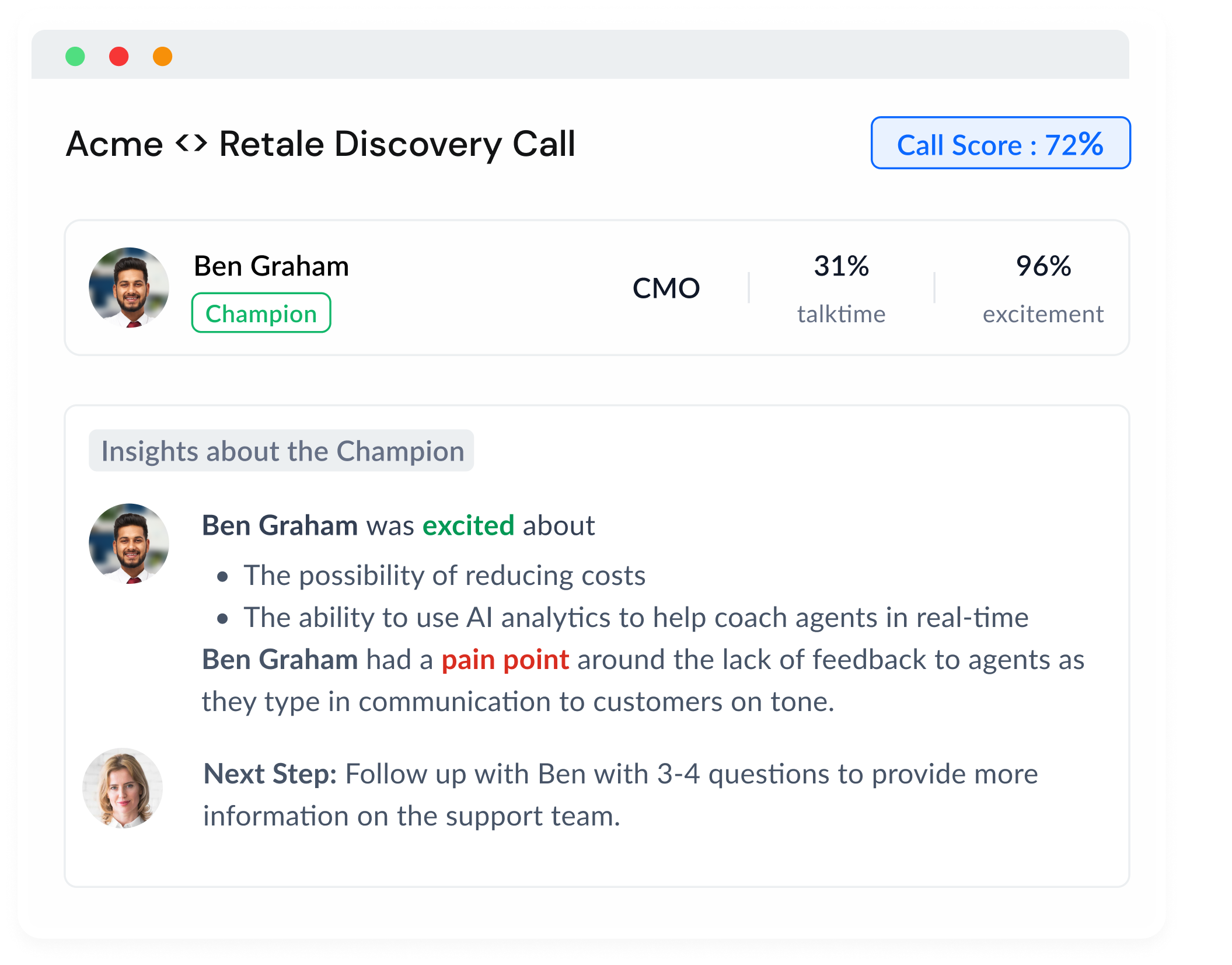Salespeople are a special breed. Some are born with the magic touch, while others polish their skills over time. No matter the origin, we call this combination of traits and skills the 'Sales DNA' - the unique genetic code that turns an 'average Joe' into a 'Sales Pro'.
Now, most would argue that there's a universe of difference between DNA and sales. But hear me out - show me a salesperson who can’t stand the mere mention of biological terms, and I'll show you one who needs a biology crash course. Just kidding! The truth is, we're not diving deep into genetics here. Instead, we're highlighting the natural and learned skills essential for sales success.
But don't you worry, there’s not going to be a pop quiz on Mitosis at the end of this post.
The Need for Empathy in Sales
Did you know that empathy is the first cousin of sales success? If not, it's time to shake up your family tree!
Empathy is the ability to understand and share others' feelings, like being able to walk a mile in another person's shoes. In sales, it's about walking a mile in your customer's shoes, even if they're stilettos or uncomfortable flip flops.
There are countless stories of sales blunders that arise from a lack of empathy. Remember the time your sales buddy tried to sell a chainsaw to a fervent nature lover? Not the sharpest tool in the shed, eh? Humor aside, understanding your customer's unique pain points and perspectives can truly set you apart in this competitive world of sales.
A gold medal for empathy doesn’t mean you need to become a Therapist-In-Sales-Clothing. But if you find yourself empathizing with a wall because all you're talking to is brick walls (we've all been there, haven't we?), maybe it's time to brush up on your empathy skills.
Resilience: The Bouncing Back Ability
Imagine playing a game of pinball. The more you get bounced around, the more points you accumulate. Fascinating, isn't it? Well, the world of sales isn't really much different. I mean, the daily life of a sales rep almost feels like being a human pinball, navigating through the bumpers of rejection, criticism, and missed targets.
That's where our super-power, resilience, comes in. It's the magical ability to bounce back from a mountain of "no's" to find that elusive "yes."
We've all had those days that make us question if our morning coffee was secretly switched with a 'become a born-again pessimist' potion. You know, those days when your prospects are shouting their "no's" louder than my aunt at a bingo game.
On days like these, you need resilience. It's not just about developing a thick skin but about learning - from failure, feedback, even your aunt's unsolicited advice. Resilience is what helps you see a missed sale as a useful lesson rather than a catastrophe.
Hearing the Unspoken: Active Listening in Sales
Active listening is more than just bobbling your head while pretending to pay attention to someone's long-winded soliloquies on "The History of Toothpicks." Nope, it's way more sophisticated than that.
In sales, active listening is about tuning into your customer's needs, even the unexpressed ones. It's about catching subtleties in the conversation, like the hidden urgency behind, "We're currently assessing our options" or the veiled disappointment in, "We expected a more competitive proposal."
Active listening also creates opportunities for you to introduce humor and fun during those sales calls that seem to stretch longer than a Monday. You can also use it to pivot the conversation towards the customer's needs, like nudging them from a rant about their failed home baking attempts toward their need for a better oven (that your company conveniently sells!).
Just remember, in an ideal world, a sales conversation wouldn’t feel like a sales conversation at all. It should feel more like two friends talking about ways to solve a problem – over a cup of coffee, of course - unless your customer prefers a double mocha frappuccino with extra whipped cream and a cherry on top.
The Art of Creating Rapport: Seller, Friend, or Therapist?
The ability to create a strong rapport lets you build bridges with your customers in an organic, non-salesy way. It may just be the secret ingredient that turns your sales call into a friendly chat, your product demo into a problem-solving session, and your prospect into a customer and eventually, a brand evangelist.
But wait, does building rapport mean you need to channel your inner comedian or become everybody's best buddy? Not really, unless your client is on a hunt for the next Kevin Hart, or is setting auditions for a "BFF" role.
Humor and banter can certainly help in building rapport, but mere small talk about a prospect's dog, their love for Picasso or that wonky bookshelf behind them during a Zoom call won't cut it. Developing rapport means understanding each prospect's unique context and communicating at a level that resonates with them.
Just remember - walking that fine line between a seller and a therapist can be tricky. On one hand, you want to get closer to your client; on the other, risk becoming their free consultation hotline. So, it's essential to strike the right balance.
Unveiling More Hidden Traits in the Sales DNA
Finally, what's a discussion about 'Sales DNA' without mentioning a couple of hidden traits that successful salespeople embody: curiosity and self-motivation.
Being curious means asking the right questions to unearth a customer's real needs. It's through asking and continuously learning that you can help solve the right problems. And, remember, whoever said "curiosity killed the cat" surely didn't work in sales.
On the other hand, self-motivation is your inner Shakespeare; it dictates to be or not to be— a top seller, that is. To be a successful salesperson, you need to motivate yourself, continually strive for growth, and have an unquenchable thirst for reaching and exceeding targets. After all, relying on your supervisor's "you can do it" pep talk won't always cut it.
So, if you ever find yourself getting lost in the language of sales, curiosity and self-motivation are your compass and map. Hold on to them and trust me, you won't be lost for long!
Conclusion: Perfecting your Sales DNA
So, there you have it, folks – an inside look into the 'Sales DNA.' It's not just genetics; it's about nurturing certain traits like empathy, resilience, active listening, and report building. Plus, a dash of curiosity and a heap of self-motivation. All seasoned with a sense of humor.
Remember, it's these qualities that transform regular humans into winning salespeople (cape not included).
However, let's put a pin in the superhero metaphors for a moment because no one wakes up one day as the Superman or Wonder Woman of sales. It takes time, experience, and above all, continuous learning. And though learning from mistakes can be valuable, wouldn't you want to avoid as many of those mistakes as possible?
That's where AI coaching plays a pivotal role. AI assistants like Sybill are more than just a shiny tech tool—they're your partners in mastering the art of sales. Sybill guides you through your sales calls, helps you analyze your conversations, and provides actionable insights to perfect your sales skills. Think of it as your personal sales coach, minus the over-the-top post-game pep talks!
With AI sales coaching, you're destined for success. Why? Because even Superman needed a mentor, and who are we mere mortals to refuse a little extra help?















.png)





